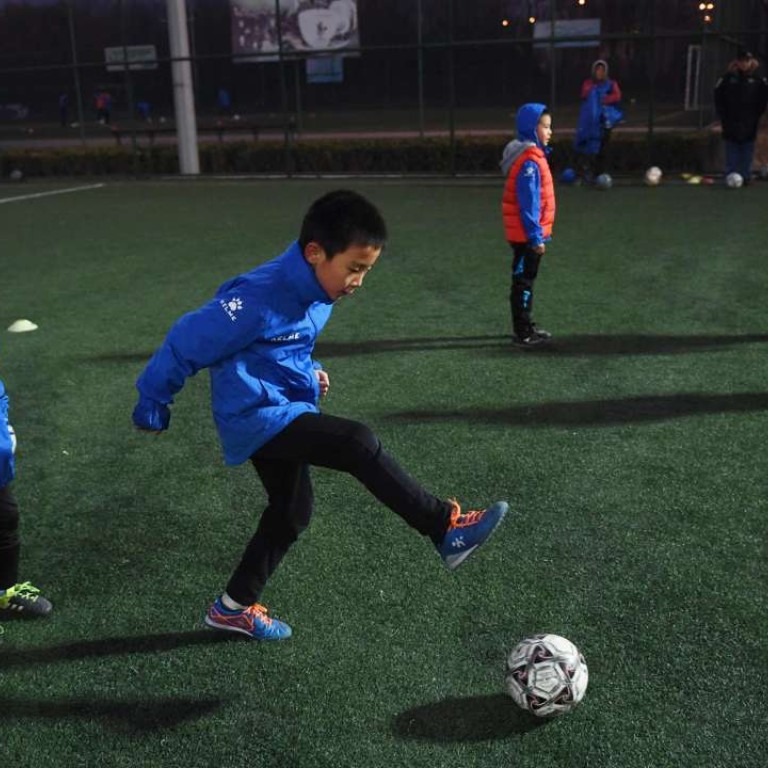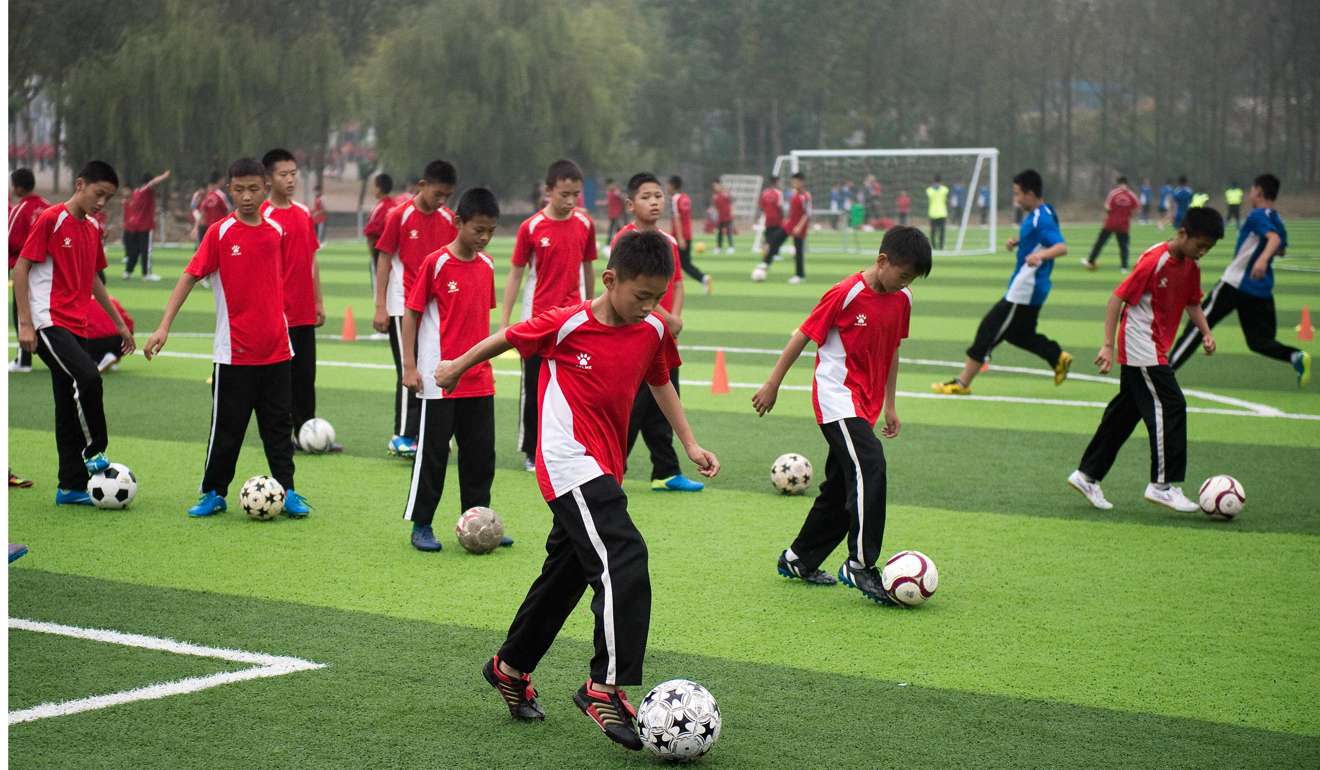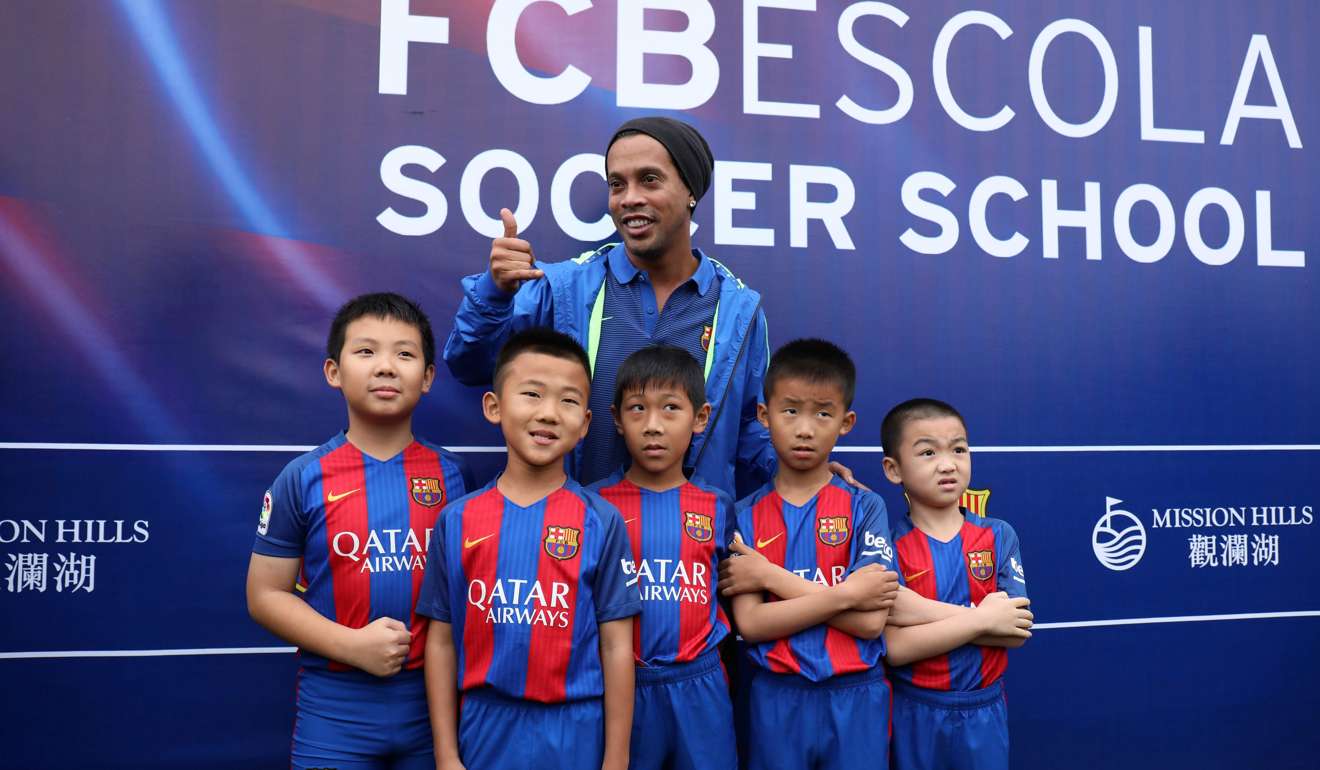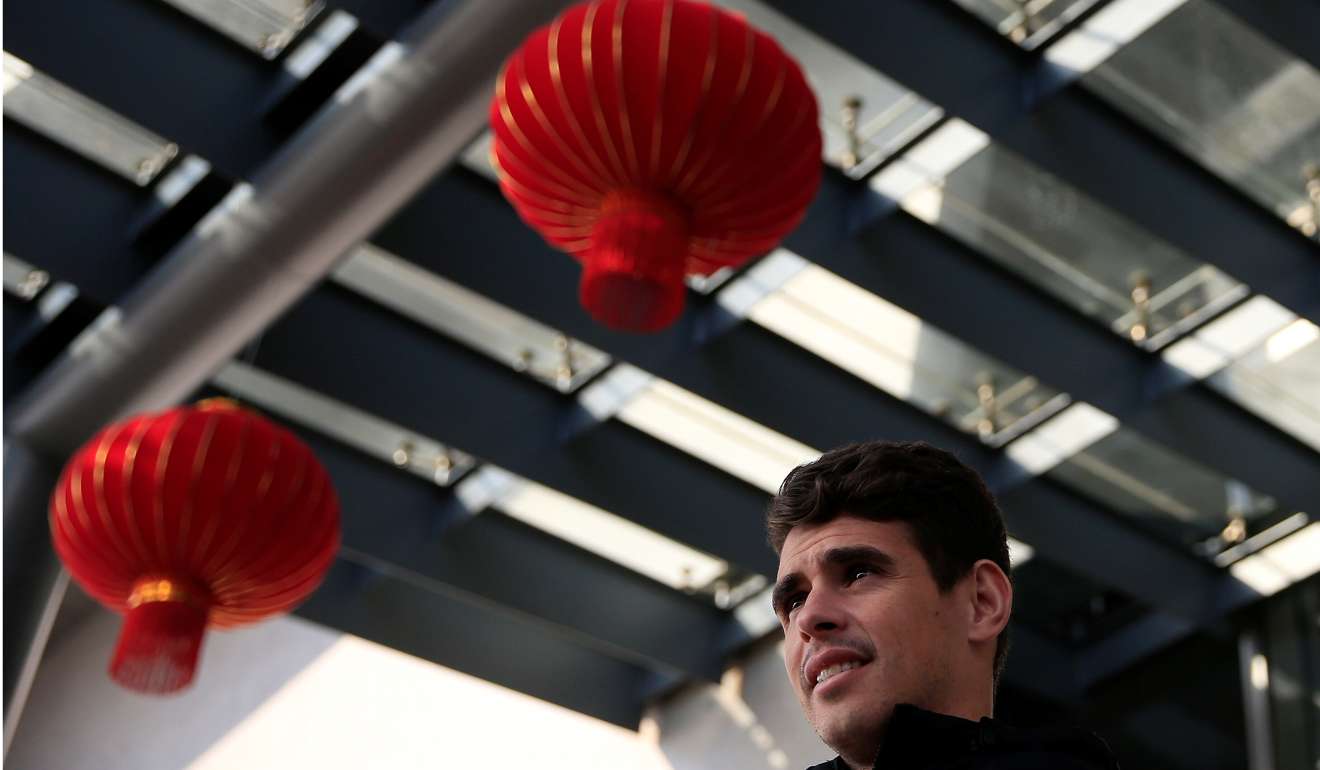
Why realising China’s grand football plans will require much more than money and policy
From learning styles to parents who don’t want their children making a career in the sport, China has a lot of challenges to work through before its ambitious football scheme starts scoring goals
With such big ideas, the coherence of China’s plan, its ongoing investment in the grassroots, and a strategic approach to talent development are all important if football is to become a success.
A challenge for China, though, is that it does not have a culture of developing football talent, leaving one to ask where it will come from. Although the country has ambitious plans for the amount of people it wants to be playing football, and is hiring some of the world’s best coaches, the game still faces some significant challenges before it can reach this target figure and then train them to compete with the world’s best teams.

Parental attitudes are the most obvious impediment to Chinese football’s long-term development, at least when it comes to young people playing the sport. In short, many Chinese parents do not want their children playing football, instead preferring them to become doctors, engineers, or even government workers.
This is in part is a result of the cynicism Chinese people have about football, which is borne out of the years of corruption, inefficiency and failure of the sport’s domestic authorities. At the same time, it also reflects their concerns about the short-term nature of a footballer’s career. Traditionally, Chinese children are expected to look after their parents in old age, something that a potentially brief career in football seems at odds with.
One way in which to crack this conundrum was recently alluded to by Zhang Jindong, owner of Chinese Super League club Jiangsu Suning, and the Suning Commerce Group’s biggest shareholder. He has called for China’s University Football League to forge a pyramid of football leagues. This provides some clues about how about the country’s leaders are thinking about the future of football.

The United States’ model of sport is proving to be a helpful reference point for China. In the US, a scholarship model sees talented young sportspeople admitted to university in a way that simultaneously enables them to study for a degree while maintaining an active involvement in sport. This college system in turn sustains a draft arrangement that underpins the core principles of sport, notably competitive balance.
The fundamental basis of sport is a contest between opponents with the outcome of that contest being uncertain. The stronger the competitive balance between the two opponents, the greater will be the uncertainty and therefore, so the argument goes, the more engaged fans will become. This suggests an interesting possibility for Chinese football – that at some stage in the future, it could well mimic US sport by having its own college draft system.
Assuming China can integrate football into both its universities and its schools, this should presumably sow the seeds for the country’s achievement of its longer-term goals. However, though England (another important reference point for China) has long promoted school football, it has largely failed to have an impact upon its stuttering national team’s performances. China will be hoping for a much more positive link.

With football embedded within the education curriculum, this does raise an interesting further issue: learning style. With such emphasis in China now being placed upon the long-term development of young Chinese players, understanding how they learn is potentially a major challenge for China. Good strategy and healthy financing are only two of the factors that will contribute to the country’s intended success.
Chinese students have been characterised by some research as being rote, silent and passive learners. Rote learning involves repetitiveness and memorisation, with the learning often being superficial and unquestioning. Classes are generally delivered by an ‘authority’ to whom students defer, resulting in silent learning taking place. Meanwhile, passive learning emphasises getting answers correct.
The reality of learning styles among Chinese students is rather more complex than the above characterisation suggests. Nevertheless, the characterisation does have implications for the coaching and development of football talent. How students are taught to play football and how they learn to play it need to be addressed which, of course, impacts upon coaches, managers and clubs too.
If we believe that Chinese students are silent, unquestioning and seek single right answers to their football training and development, their coaches will need to be able to fulfil such a role. This implies that coaches who adopt a more open, collaborative style may well have difficulties in engaging young players. Indeed, a more autocratic authoritarian style might be more appropriate, which could be a problem for the likes of some Europeans.
Equally, unless the culture of learning in China changes in the future, how its football graduates are then managed in the professional game will also be significant. If Chinese teams are to compete with the very best in the world, then being independent, self-starting and vocal are traits which their prior education and training must instil within them.
Looking ahead, one is inclined to conclude that former Manchester United manager Alex Ferguson and his notorious ‘hairdryer’ treatment of players would be well suited to the Chinese game. Perhaps he still has a role to play in football? But for younger coaches and managers, who are perhaps more egalitarian and collaborative in their approach, one suspects that either they need to adapt or that young Chinese footballers do.
This piece is published in partnership with Policy Forum.net (www.policyforum.net), an academic blog based at the Australian National University’s Crawford School of Public Policy.

